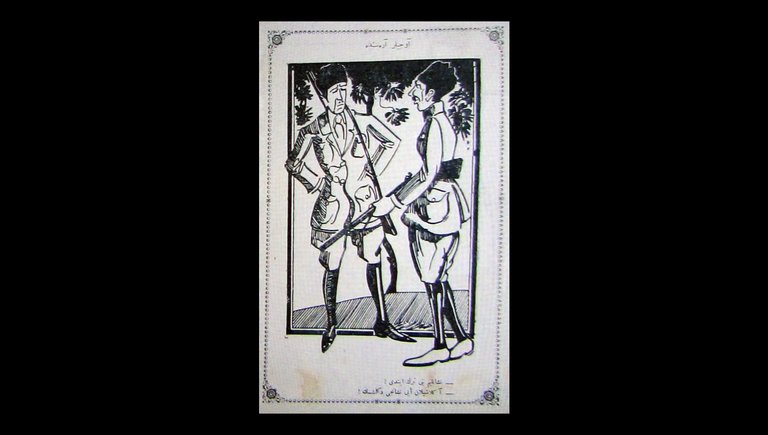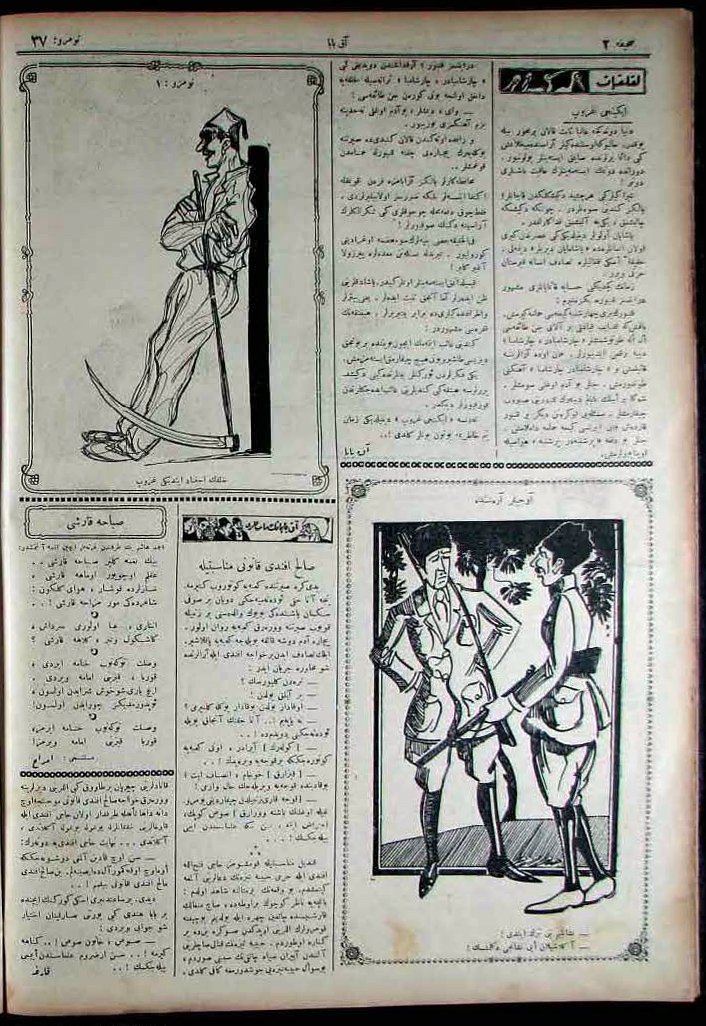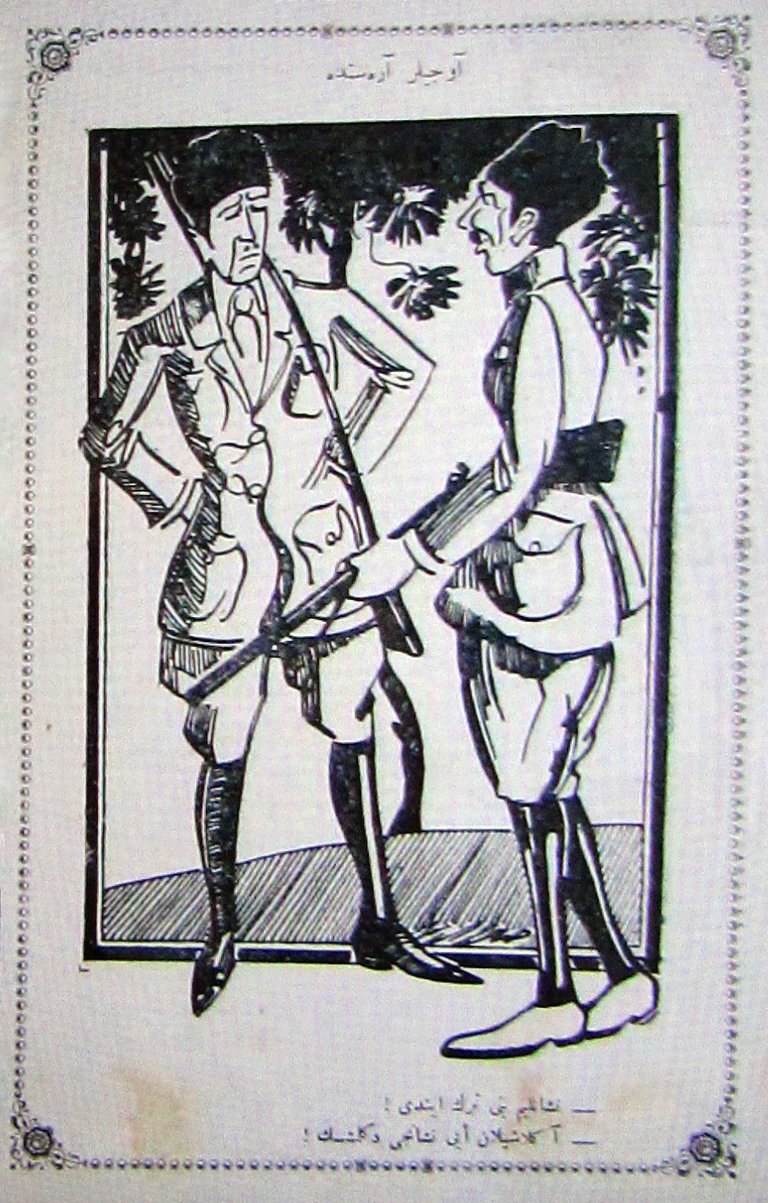
(Cartoon, Akbaba or “Vulture/White-Bearded Old Man,” 12 April 1923, no. 37, page 2.)
Türkçe
(Üstte)
Avcılar arasında
(Altta)
—Nişanlım beni terk etti!
—Anlaşılan iyi nişancı değilmişsin!
English
(Above)
Between hunters
(Below)
—My fiancée left me!
—Apparently you are not a good marksman!
Comments:
The cartoon medium often employs both text and image to communicate an idea or narrative. A multi-faceted, well-integrated, or otherwise successful cartoon will often work its humor into the text and image equally, although sometimes one element is favored over the other. In the case of the current cartoon its humor lies in the text not the image, which serves as a mere illustration. That said, the text itself is not terribly witty. For those only reading the English version, the crux of this joke is lost in translation but its original Turkish is not that better and suffers from a lack of complexity. The joke is rooted in the coincidence that the word for fiancée (nişan-lı) shares the same root as the word for marksman (nişan-cı). A nişan is both an engagement and target. As such, the man whose engagement was broken is naturally bad at engagements and therefor, according to his companion, bad at aiming his rifle.
Taken at face value, this joke elicits more of an eye-roll than a chuckle, even in its native context. Although it is not an example of the pinnacle of humor, it serves to illustrate some of the simple ways in which language lends itself to silliness especially when certain words can mean multiple things (homonyms). Of course, given the conjugal nature of the dilemma, it is possible that the joke is more layered than our first impression indicates. Either the cartoonist had an unsatisfyingly dull sense of humor or there is more to the joke than is immediately apparent to me, the reader…
Maybe I failed to summon the appropriate logical connections at first. The “fiancée/marksman” semi-pun created by the use of the words nişanlı/nişancı may also function as a double entendre revolving around the notion of a target, goal, or accomplishment. Meaning that if the hunter failed at obtaining a spouse he will likely fail at obtaining game during the hunt. According to his hunting companion, this shortcoming could be a result of his bad aim, which is a concept that could easily carry sexual connotations. It is not uncommon for the hunt to be compared to the pursuit of other forms of carnal sustenance. Thus, the failure of the engagement may be attributed to the would-be groom’s poor “aim”—a skill that perhaps he has already demonstrated to his now ex-fiancée. As such, the truthful friend suggests that if the hunter’s fiancée left him, he should seek fault in himself.

(Entire page, Akbaba or “Vulture/White-Bearded Old Man,” 12 April 1923, no. 37, page 2. Hakkı Tarık Us Collection, Beyazıt Library, Istanbul.)
This article has been updated and modified from its first iteration published right here on Steemit on 12 April 2018. For the original version see:
145. Today in 1920s Turkey: 12 April 1923 (Hunters in the Forest of Love)

Congratulations @yasemin-gencer! You have completed the following achievement on the Steem blockchain and have been rewarded with new badge(s) :
You can view your badges on your Steem Board and compare to others on the Steem Ranking
If you no longer want to receive notifications, reply to this comment with the word
STOPTo support your work, I also upvoted your post!
Vote for @Steemitboard as a witness to get one more award and increased upvotes!